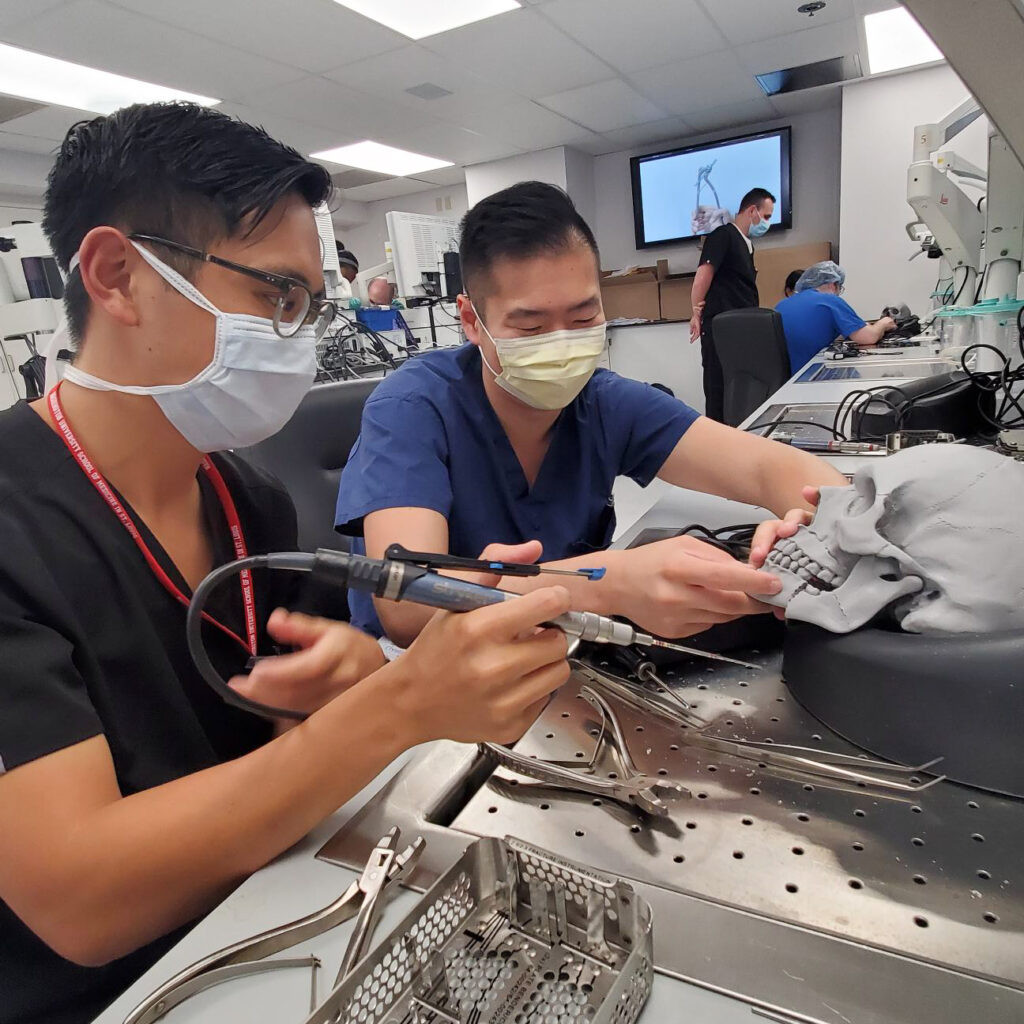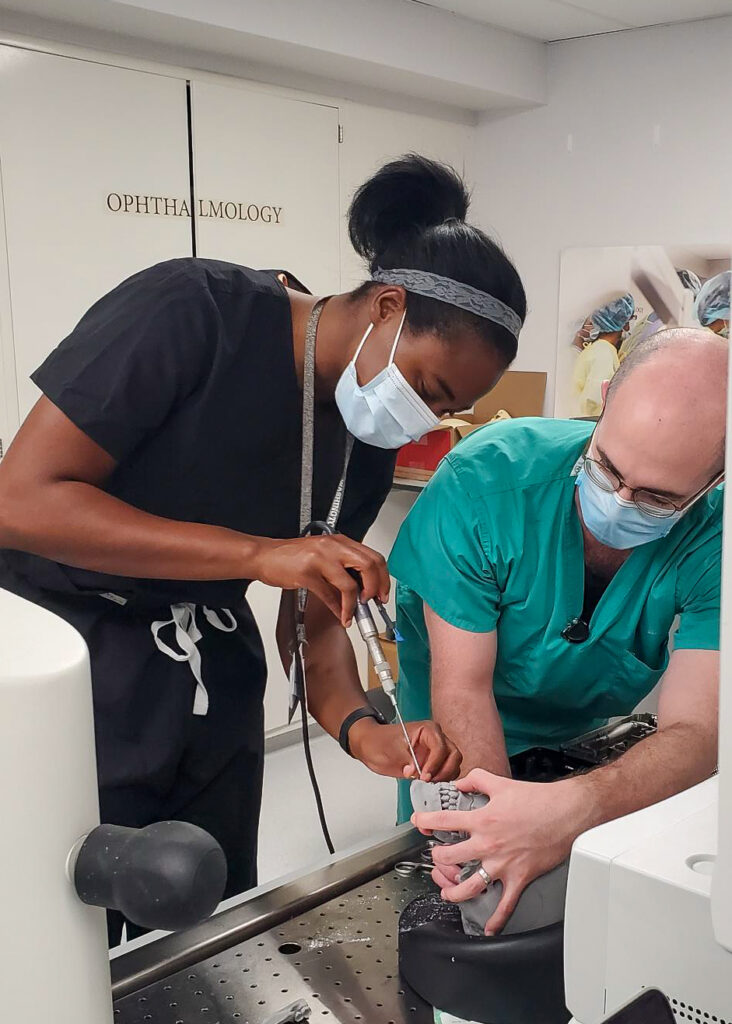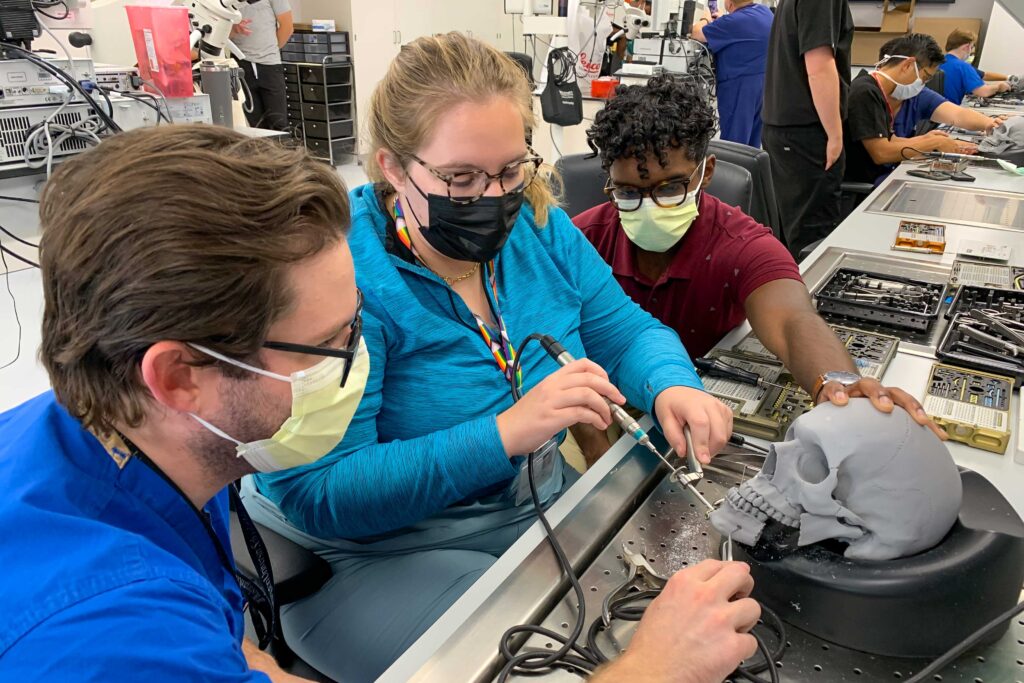During their annual course, otolaryngology residents at Washington University School of Medicine gained hands-on experience in facial trauma reconstruction techniques.

Held in the surgical simulation lab, the annual course serves as an introduction to the principles and surgical techniques for craniomaxillofacial trauma reconstruction, said facial plastic surgeon John Chi, MD, MPHS.
“It is a foundational course with a hands-on educational approach that focuses on small group learning,” said Chi.
During the July 16 event, residents gained experience with basic surgical techniques of fracture fixation in the mandible, midface and orbit using drills, plates and screws. Composite models of the human skull were used for the procedures.

Faculty instructors included Chi, and facial plastic surgery colleagues Greg Branham, MD, and Emily Spataro, MD. Fellows Richard Speaker, MBBCh, and Robert Cristel, MD, also participated. Stryker MedEd provided supplies and equipment to facilitate the course.
“The course was well organized thanks to the wonderful support of Stryker and our reps and the commitment of the faculty to educating our residents in trauma care,” said Branham.
Chief resident, Jake Lee, MD, said the trauma plating course was a great hands-on experience for residents of all training levels.
“As a senior resident, it was a very comprehensive refresher on techniques for fixating both mandible and midface fractures,” said Lee. “The course also allowed me the opportunity to teach junior residents, including interns who have not previously been exposed to these procedures.”
